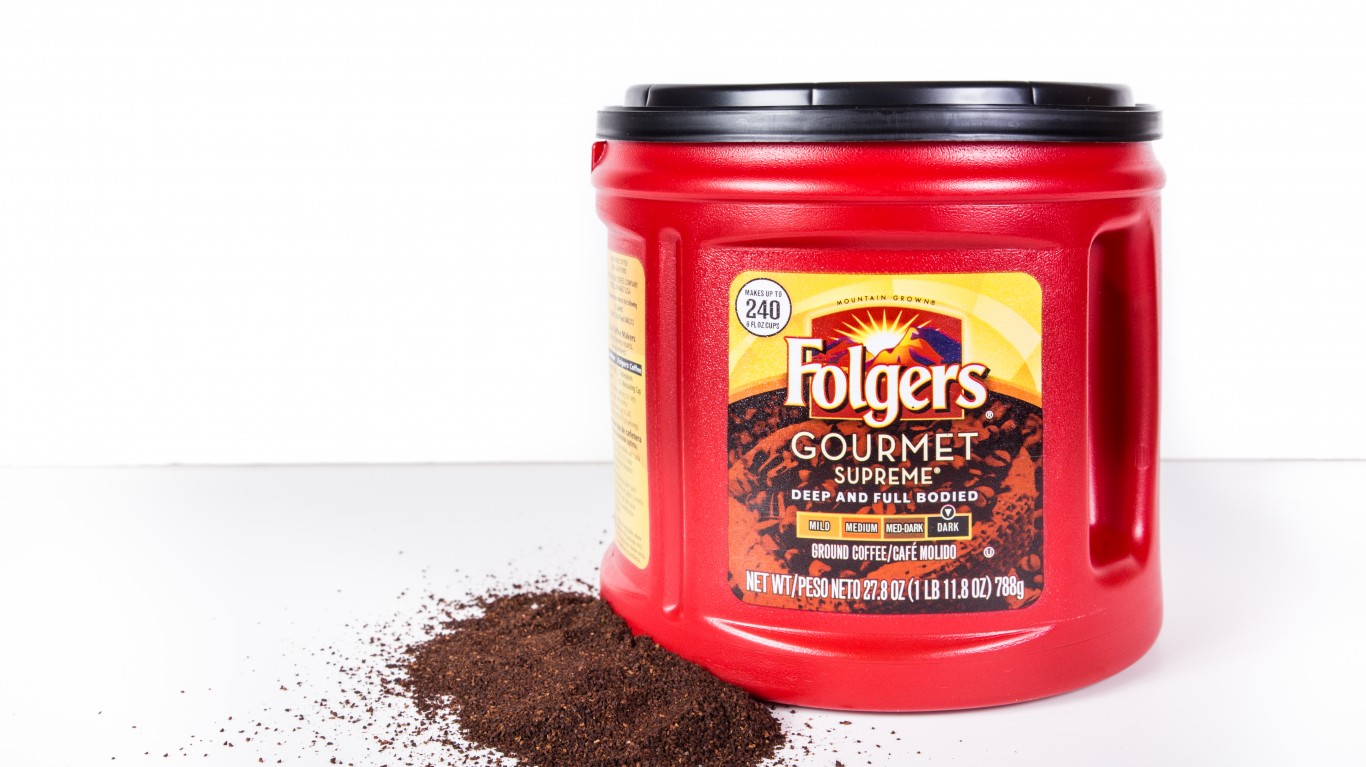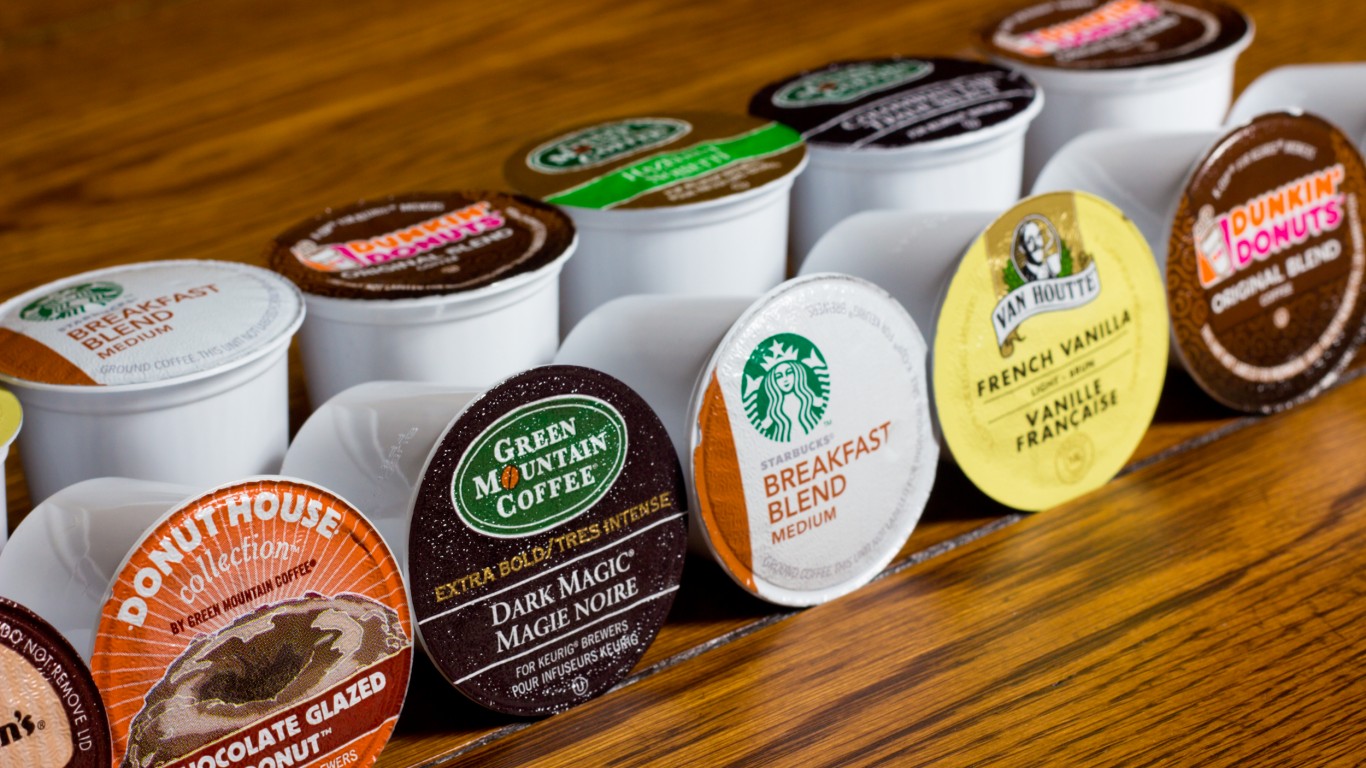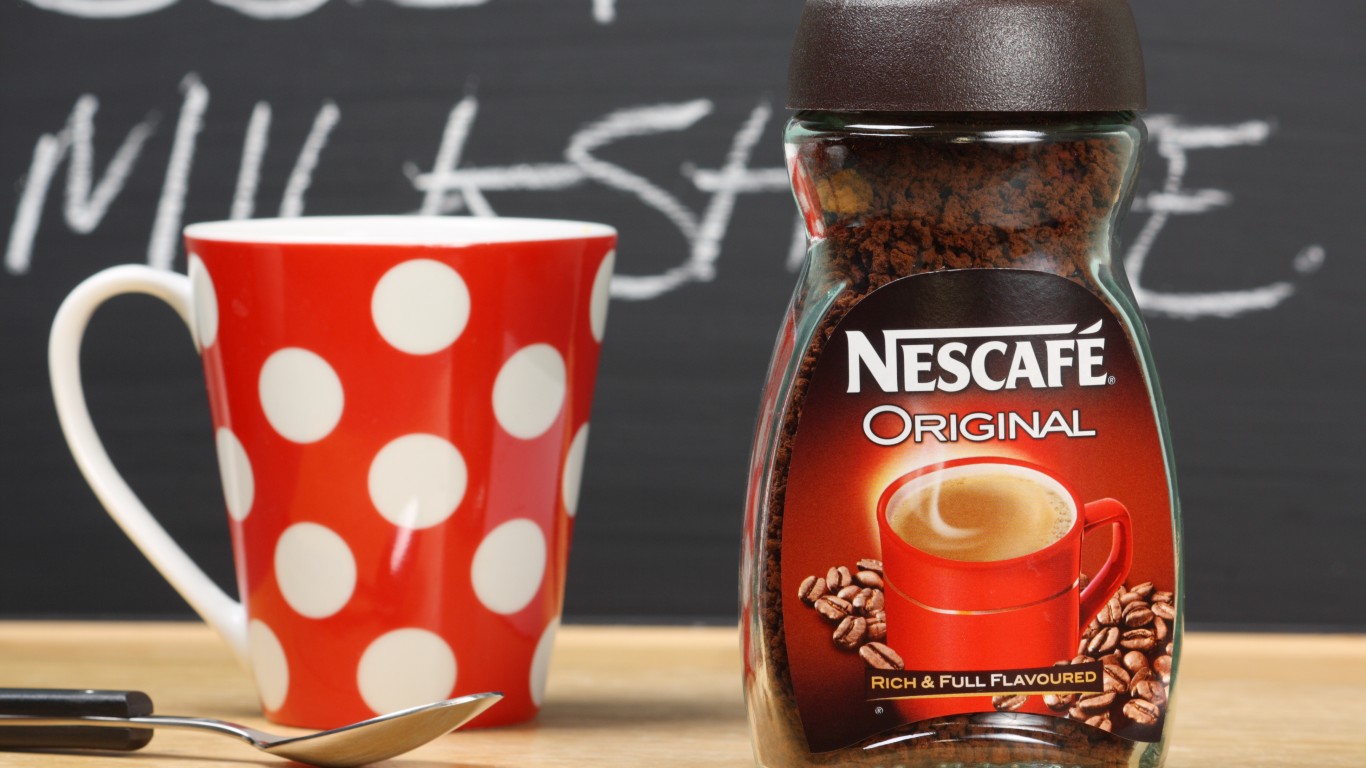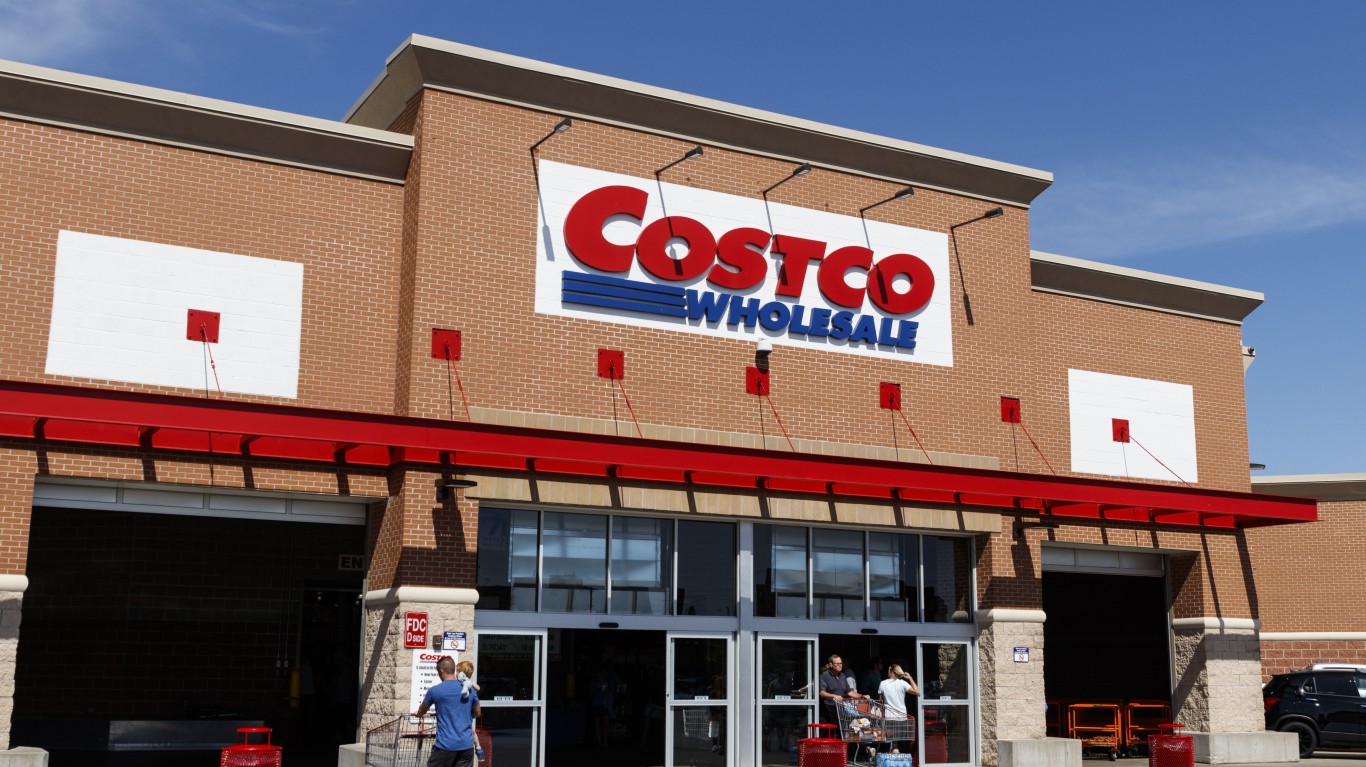
In the quest for the perfect cup of coffee, it’s just as important to know which brands to avoid as it is to know which ones to seek out. This detailed blog will examine a selection of coffee brands that, due to various reasons ranging from quality concerns to ethical issues, might be best left on the store shelves in 2023.
#1. Folgers

Folgers, once a symbol of American coffee culture, has seen its reputation tarnished by a series of questionable practices. Known for its pre-ground coffee, Folgers lacks organic options, leading to concerns about the freshness and quality of its brews. The absence of sustainability certifications raises questions about the brand’s commitment to ethical coffee sourcing and production methods. This shift from a beloved household name to a brand marked by shortcuts in quality and ethics is a warning to consumers seeking both quality and responsibility in their coffee choices.
#2. Death Wish Coffee

Death Wish Coffee has extremely high caffeine content, which presents a paradox in the coffee world for consumers to dislike this brand. While it boasts the use of fair trade USDA organic beans, there is little transparency regarding the origin of these beans, which are primarily sourced from India and Peru. The brand predominantly uses a blend of Arabica and Robusta beans, the latter often considered lower in quality compared to Arabica. Consumers have also reported issues with the oiliness of Death Wish’s whole-bean coffee, which can be problematic for standard home grinders. Additionally, the high price point, with a one-pound bag costing around $20, raises questions about its value for money
#3 Green Mountain Coffee

Green Mountain Coffee’s decline in quality can be traced back to its acquisition and subsequent corporate direction shift. Originally celebrated for its independent, high-quality coffee, the company’s focus shifted towards cost-cutting and mass production following its takeover by JAB Holding. This led to a suspected use of inferior coffee blends, especially in their widely used coffee pods. The shift from a quality-driven independent brand to a corporate, mass-producing entity disappointed many loyal consumers who valued the original artisanal approach of Green Mountain Coffee.
#4 Yuban
Yuban’s downfall in consumer preference is attributed to its recipe change. Previously known for using 100% Colombian beans, the brand shifted to a blend of Robusta and Arabica beans from unspecified Latin American regions. This change, perceived as a move towards cheaper, lower-quality beans, resulted in a noticeable decline in taste and overall coffee quality. The lack of transparency and the deviation from its original Colombian coffee roots have led to a loss of trust and preference among its customer base.
#5 Nescafe

Nescafé, despite its immense global presence, has significant problems. The brand’s failure to offer organic certified coffees, coupled with the potential for chemicals and mold in their products, is concerning to their consumers. Although Nescafé has partnerships with environmental groups, these efforts are overshadowed by the lack of emphasis on organic practices. The focus on instant and ground coffee raises further questions about the freshness and overall quality of their offerings, making Nescafé a less favorable choice for those who prioritize both health and environmental considerations.
#6 Kirkland Signature

Kirkland Signature, the in-house brand of warehouse giant Costco, presents an key issue for coffee enthusiasts. While offering a diverse array of coffee products at attractive prices, Kirkland Signature’s coffee has sparked debate due to the opaqueness surrounding its bean sourcing. The brand seldom discloses specific information about where its coffee beans are sourced from, leaving consumers guessing about the origins, quality, and ethical standards of the beans used in their blends. This lack of transparency becomes a significant hurdle for those who value clarity and integrity in their coffee’s journey from farm to cup.
It’s Your Money, Your Future—Own It (sponsor)
Retirement can be daunting, but it doesn’t need to be.
Imagine having an expert in your corner to help you with your financial goals. Someone to help you determine if you’re ahead, behind, or right on track. With SmartAsset, that’s not just a dream—it’s reality. This free tool connects you with pre-screened financial advisors who work in your best interests. It’s quick, it’s easy, so take the leap today and start planning smarter!
Don’t waste another minute; get started right here and help your retirement dreams become a retirement reality.
Thank you for reading! Have some feedback for us?
Contact the 24/7 Wall St. editorial team.


